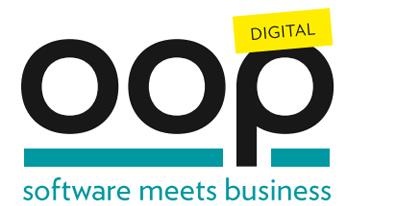
Conference Program
Please note:
On this site, there is only displayed the English speaking sessions of the OOP 2022 Digital. You can find all conference sessions, including the German speaking ones, here.
The times given in the conference program of OOP 2022 Digital correspond to Central European Time (CET).
By clicking on "EVENT MERKEN" within the lecture descriptions you can arrange your own schedule. You can view your schedule at any time using the icon in the upper right corner.
Track: C++ and Programming of Embedded Systems
- Dienstag
01.02.
C++20 is now a year old. Time to take a closer look at the benefits you get when using C++ for standards 11 to 20. You learn about Coroutines by building a coroutine-based parser. The new ranges and the spaceship operator help you write less code. You will learn how Concepts help you to express constraints better and improve error messages. Doing things at compile-time saves run-time. Let‘s see how C++20 improves your code with the new features consteval and constinit. After this talk, you…
C++ class design has been error prone since the beginning, until Scott Meyers told us about the Rule-of-Three. But even that is not enforced by the language. In addition, C++11 changed the set of compiler-provided special member functions and the intrinsic rules have become more complicated. However, instead of starting from the rules for special member functions, we will look at what role a class type plays and how that maps on what special member functions to define and how, if any. Examples…
For many embedded C++ applications, compliance with the AUTOSAR or Misra rules is required. Among them is AUTOSAR Rule A18-5-5 which does not allow memory allocations with new. Since new and delete violate A18-5-5, the default STL containers must not be used in applications requiring AUTOSAR compliance. This holds for many embedded applications. With the allocators available since C++17 in the namespace std::pmr (polymorphic memory resources) these requirements can often be satisfied.
Target…
New MISRA C++ 202x are coming. This release will address modern C++ and thus is relevant not only for safety critical code in the automotive sector, but also for day-to-day C++ development. Expect the new MISRA rules to be less "miserable" for your day-to-day coding and use static analysis tooling to enforce them. Understand what kind of C++ will be considered unsafe, get examples of guidelines and learn which rules better to suppress in static analysis tools in non-safety-critical software.
Targ…
